

Leading lights of the channel reveal how they restructured and strengthened their resilience
Imagine being told in January that your entire business wokenuld be hit overnight, with all your staff sent home and with a matter of days to restructure. That problem hit nearly every UK business. So how did the channel cope, what did it learn and how is it bouncing back?
Toby Stubbington, director, Pier Insurance:
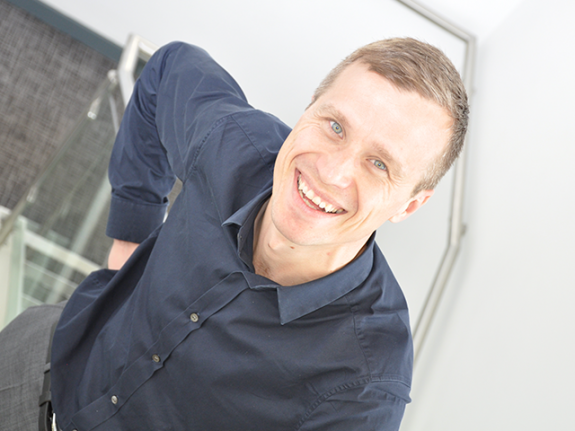
The crisis had the potential to inflict damage in many different areas of the business, which a lot of early communication helped us to mitigate. We moved quickly in reviewing our continuity plans, but changed them to fit the scenarios ahead.
Mitigation started some time ago, when we digitised aspects of the business. The long-term impact of Covid is hard to fully envision, but I expect we will be more fluid in the workplace.
It is also likely to impact some of our areas of investment. If we were ever complacent, we will be less so now and continue to drive for improvements.
The mobile industry will benefit from a combination of 5G and IoT. However, forecasting the structural impacts of Covid on lifestyles and working patterns is harder. The mix of home and office-based work is likely to change in favour of more homeworking, which will benefit from WiFi over mobile.
We will probably find that people spend more time communicating via electronic devices and less in person, which may continue to drive up mobile use. Brexit, higher unemployment and a less benign international political environment will weigh on investment and consumer confidence.
This will be mitigated by short-to-medium-term actions by governments, at least in some sectors. I have more confidence in IT, telecoms, mobile and insurance – and there will be opportunities and new business over the next year.
I’d love to have more face-to-face meetings than over the last few months. Virtual meetings have a growing place as a mitigant to pandemics and climate change, but it is easier to build rapport in person (and sometimes over a meal or a pint). After all, we are human.
Stephen Westley, managing director, Global Mobile Communications/Iris IoT:

The rugged device side of the business has been a winner. But projects like our new phone have been pushed back due to one of the UK manufacturing partners having to close down. We closed our office and had half the staff working from home.
We did have to let some people go due to the slowdown in sales. We’ve realised that we don’t need all the staff to be in the office all the time, so will be looking at more remote working.
There are long-term benefits for the mobile industry, with opportunities to supply more tech and better connectivity.
It’s difficult to gauge business confidence, and the situation has not settled enough to say what the future holds. But interest in IoT is rising in areas such as monitoring air quality and building occupancy levels.
I’m looking forward to returning to face-to-face business for sure; I can’t wait to see our old partners and get fully hands-on.
Shez Cheema, CEO, Tela Technology:

We’ve missed having informal colleague-to-colleague chats that don’t require email. We also miss the benefit of a face-to-face supplier, customer and partner meetings. Building rapport is more challenging over the phone or a video call. We immediately adopted remote working across our 10 regional offices, which posed a few challenges.
We’re a business that is proud to be friendly and welcoming, with an open-door policy. This is diffi cult to convey when not in the office. We introduced a fortnightly company-wide update, whereby I, or our head of HR, would provide a live video feed, answering any questions raised by the team. It was important that we communicated with customers in a sympathetic and supportive manner.
We took the time to understand the challenges that Covid-19 placed on them, which has helped our customer support team maintain call volumes, ticket cases and service during lockdown. We placed a lot of trust in our team, who acted admirably throughout. This period has demonstrated that we could benefit from collaboration tools to allow work activities as normal, while also providing flexibility for home life.
We will still have our regional offices for local teams as a point of meeting, but the days of the large glass head office have now gone.
A seismic shift in working patterns and technological innovation has taken place. The industry will benefit from businesses reviewing disaster recovery and ensure they have resilience moving forwards. Data and connectivity will be key to fully realising the benefits of the digital workplace.
Businesses will need to ensure they can digitise their business and be prepared for an increase in automation. A common-sense mix of both will be appropriate and relevant. You still can’t recreate the human interaction and connection, and the empathy we feel in dialogue. Teams will become more prevalent in the workplace, as will hosted telephony platforms that can integrate these new ways of working.
Ray Ferris, Group MD, Radius Payment Solutions:
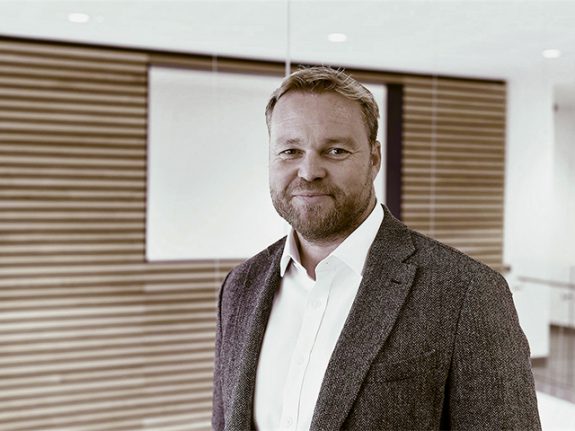
Lockdown saw us quickly mobilise our business continuity plans. We moved all but a few key workers to work from home a few days before the official lockdown. We had lots of staff using public transport and it felt the right thing to do for the safety of our teams.
We helped customers also do the same, with a short-term hire campaign for mobile devices and MiFi units that enabled quick
home connectivity. We mobilised hosted telephony and SIP connectivity for about 1,000 users over that initial lockdown period, enabling customers to keep serving their own customers remotely.
We have found a good balance between remote working and making office facilities available to those who needed them. It’s been an interesting time to lead a business remotely, and has given us a better understanding of the tools our customers rely on such as Microsoft Teams.
Longer-term, many of our customers will evaluate how they operate, as well as what percentage of their workforce will work remotely and return to the office environment. It will be the same for us.
I enjoy the office environment. If it can be operated safely, there are major benefits to working a combination of face-to-face and technology-led interactions.
The opportunity is in staying close to your customers, helping them through this period, and in turn showing how you can innovate beyond today.
The UK and international markets will begin to open up, with various levels of contraction and expansion due to further localised lockdowns. It could be a staggered return to growth over a longer period than a year for the broader market.
But from a personal perspective, we are excited about opportunities for the Radius Telecoms group. I can’t wait to get back to meeting customers and prospects face-to-face. I miss the buzz of regular customer meetings, and lots of my team feel the same. Virtual meetings are here to stay for some interactions. That, in turn, has a positive impact on both the environment and overall productivity.
Paul Walters (left), director, Phoenix Cellular:
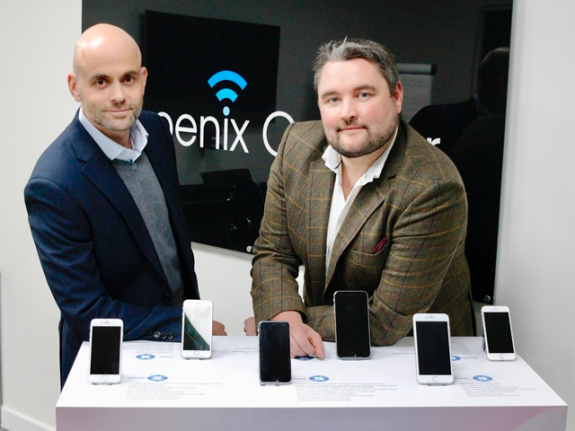
We had to adapt quickly to mobile working for all staff, and we now have around half our workforce at home. We were fortunate, as Phoenix Cellular was built on cloud-based systems. This allowed us to remain operational during the lockdown and act like we were still in our premises.
It felt prudent to begin preparing for a possible lockdown long before it was officially announced. We receive a huge number of daily deliveries, so it was paramount that procedures were in place that protected our team.
We set up hourly cleaning schedules, all hard surfaces were disinfected, and there were staggered lunch breaks and shift changes.
We separated our processing and repair facilities across the two full floors of our building. Many of our competitors were forced to shut their doors during the lockdown, so it was more important than ever that ours remained open.
We have just begun construction on a new 40,000-square-foot warehouse. This is due to be completed in mid- 2021 and will house a 70-person repair centre and a full training centre, as well as aiding an increase in a distribution capacity.
During lockdown, business levels remained at their forecast growth rates. I’m not saying it has been easy; our business has had to adapt massively. The ability to fulfil orders to meet customer expectations has been tough, alongside our own high standards – but I’d say we’re pretty confident looking at Q3 and Q4.
I’m looking forward to seeing our team. We’re a close-knit bunch who have always worked well together. The office has a certain buzz about it that cannot be replicated virtually, but I can see virtual meetings being the new normal. They’re convenient, reliable and just as effective as face-to-face ones. In the right circumstance with the right people, they’re here to stay.
Paul Hooper, MD, Uplands Mobiles:
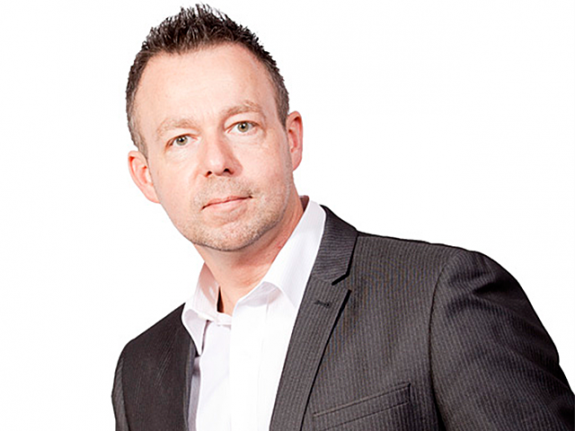
The main impact, bizarrely, is a positive one. We are much wiser, and more pragmatic, flexible and adaptable than before.
Like so many businesses, we took an absolute pasting in the first few days of lockdown, not knowing what the effects would be. But we’ve managed it, to the benefi t of our team, partners and customers.
We have had to work differently, with some home working and greater flexibility. But we’ve also seen great opportunities and new challenges for our business.
We didn’t panic. We just adopted a pragmatic approach that we had to act quickly by getting ourselves in the best position in difficult circumstances.
Early on, we opened communications with all our customers to understand their challenges and to see how we could best position ourselves to support them. We had very different conversations with our customers, not just about product or supply, or service and support. We had more human conversations, about health, safety and wellbeing.
To enable our business to move forward, we needed to ensure that we could move safely back to the workplace and into a stronger position, with more flexible operations and even great relevance to our customers.
Last year, we moved into new offices, with space for further expansion. This year, we sent everyone home. But I don’t regret the new offices at all. We have adapted well to remote working and for many of our team, it is business as usual.
We are a sociable business and we work best when we work together. Getting back in the office has been great. Today, we are operating under a ‘new Covid-19 normal’. We left the old normal behind when we asked our teams to stay at home. Now, we have to move onto the new one, understanding what this will look like and how we will operate in it.
The long-term future for comms businesses is strong and exciting for those able to adapt. We have looked to accelerate change to ensure Uplands can grow in the next normal.
We have accelerated our digital transformation to become faster and more relevant to customers. This is an absolute business imperative, and we are investing in improving our online service with a great community platform and self-serve to benefit all customers.
We have been in business for over 40 years, and have seen many challenging times, recessions and financial crises. But with planning and flexibility, we have been able to adapt and we have real confidence about the year ahead.
We have seamlessly integrated virtual meetings, which has enabled us to continue trading and support our customers throughout Covid-19, but also highlighted the sustainable advantages of working this way. Yet people are at the heart of all we do, so getting back in front of our customers is areal driver for us.
Martin Flick, CEO, Olive:

Olive was well prepared. With less than 12 hours’ notice, we invoked our ‘work from home directive’ and closed the office to test our ability to function remotely across all departments for a sustained period.
Following that successful test, we closed the office from March 12 onwards to put the health, safety and well-being of our stafffront and centre. We put several initiatives in place to help working parents, and those with health issues, financial worries and
potential bereavement challenges.
We engaged a ‘virtual’ personal trainer to run video workouts with our team. The combined weight loss and improved fitness have been staggering.
Our team adapted to working from home, supporting all of our customers and remaining highly productive. They also conceived and launched new flexible and scalable remote products – some free.
In lockdown, we launched a suite of cloud telephony services designed to deliver direct routing, PBX integration, secure voice recording and contact centre capabilities within a Microsoft Teams environment to help customers work more effectively remotely.
We also added new functionality to our Safetybank health and safety platform for implementing, monitoring and reporting on new Covid-19 protocols, helping customers to prepare for a safe return to the workplace.
Most of our large customers remained fully functional and were very busy invoking their plans to adapt – and this kept us busy. However, many smaller customers became entrenched during the early stages, so furloughed about 25 per cent of the workforce – most of whom have now returned. We also spoke to customers in some vulnerable sectors, understood their financial challenges and agreed to some flexibility to help them.
We will retain our HQ, but it will be repurposed as a collaboration and technology hub. Working from home and the increased productivity, reduced carbon footprint and better work-life balance for our staff are all benefits that we will sustain, with remote and flexible working having proven highly effective.
Our team will come to the office to meet, share ideas, and collaborate with customers and partners, but not to sit behind a desk all day in front of a screen. HQ will become our brand hub and cultural home, with agile and flexible working and meeting spaces.
The pandemic and lockdown have proved what those in our industry already knew: it is our job to help liberate corporate citizens to better ways of working consistently.
Confidence is high, and we have fantastic partnerships with Vodafone, Mitel, Google Cloud, Microsoft and others; we can provide solutions that will help UK PLC thrive.
We are looking forward to the right balance of virtual and physical meeting that will make every interaction and our time purposeful, productive and enjoyable.
Jason Kemp, co-founder of Our Perspective and Genuine Case Company:
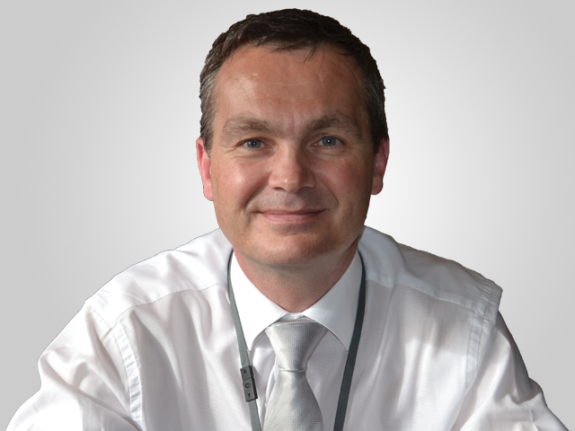
We launched our ‘Made for Alcatel’ range of shockproof cases and screen protection just as the pandemic hit. Shipments from China arrived late, transport costs increased due to a lack of planes carrying freight, retailers had closed down, and our ability to meet and engage with customers stopped before it started.
We had to furlough staff to reduce business costs while at the same time accelerating our Amazon partnership across Europe. We have found consumer spending to be slow as people worry about their jobs, prioritise spending and change their shopping habits – so business has been slow.
Our office routine will eventually get back to normal. However, I fully agree with more staff working from home provided they can be accountable. It’s a win-win for the business, employee and environment, and I expect a permanent shift in working practices across the globe.
Kitting people out to work from home was a massive opportunity when the pandemic struck. From mobile phones to broadband, and from MiFi units to laptops, the rush to get equipped meant many telecoms businesses have had a bumper few months. Undoubtedly, there is a long-term benefit as businesses ensure employees have the right level of kit and connectivity to work from home.
The telecoms sector will bounce back quickly from the pandemic and future economic shocks. However, any increase in general unemployment and business failures in other sectors will directly impact on B2B and consumer sales. The pandemic is also another blow to the high street that will put further pressure on retailers who could struggle.
Virtual meetings have their place, but for business development, product launches and sales training they are not fit for purpose. I need to be in front of customers, showing them products that they can touch and feel: this is impossible on a Zoom call. That said, virtual meetings have progressed to a level where routine business can be conducted successfully.
James Reed, managing director, Endpoint Solutions, Tech Data:

The last three months have been quite buoyant for Tech Data’s Endpoint Solutions business. We saw an initial flurry of activity when lockdown began as everyone looked to get people working efficiently at home. Many people bought without assessing their needs and have been making further investments in products that will aid productivity at home, such as better displays, keyboards, mice and small printers.
We are seeing desktop set-ups being replicated in the home and office, and that’s triggered more activity. The focus has been on laptops and PCs, so we’ve not seen the same kind of surge in mobile and tablet devices, although sales of mobile accessories have been good.
Our InTouch online platform has shown its worth during lockdown. Customers can do almost anything using that, from placing and managing orders to applying for more credit.
It’s been something of a lifeline for some of our customers. Many had staff on furlough and have also been contending with home schooling. Having InTouch, with all its capabilities, available 24/7 has been useful.
We have also seen more uptake of our Tech-as-a-Service offering as organisations look to ease cashflow and spread the cost of technology investment, as well as increased usage of learning platform the Tech Data Channel Academy. We were very much ready and geared up to work at home already.
It has been business as usual for Tech Data. Our warehouse stayed open, with new processes to ensure staff stay safe throughout the lockdown. Office locations have been modified to allow people to go back into the workplace voluntarily.
Geoff Burns, head of sales and customer experience, Nice Network:

The pandemic has in fact led to a surge in demand for our services. We specialise in unified communications, IT and helping organisations prepare for crises, so we were quick to roll out our remote-working strategy.
Many of our clients have also started to adjust to remote working, so the requirement for providers like ourselves has only increased. We have long had a disaster recovery plan prepared to ensure we’d be able to continue operating in the event of any crisis.
This helped make the remote-working transition seamless. Our business development team has had the option to work remotely for some time. It was only our engineers, business support staff and general office workers we had to help adapt to it.
However, it didn’t take long at all. We will continue to operate from Comms House, but extending our remote-working policy is certainly something we’ll be considering. Some employees, such as our engineers and support staff, will be required to work from the office.
However, we’ve witnessed the benefits remote working can bring. It would be naive not to offer our employees the opportunity to work more flexibly. The impact of video conferencing and collaboration tools such as Microsoft Teams will be transformational.
Over recent years, we’ve helped many organisations adjust to remote working, but there has always been a sense of nervousness until now. The pandemic has forced organisations to adapt and, for many, the way their employees work will never be the same again.
With the right connectivity, applications and hardware, businesses realise that their employees can work from anywhere, reducing operating costs and increasing productivity.
We’ll be launching a new product powered by Microsoft Teams that will transform the way our clients communicate. TeamsTalk by Nice Network will bring carrier-grade telephony to Microsoft Teams, allowing our clients to work remotely from anywhere with all the benefits of a fixed-line office connection.
This will stand us in good stead for another year of growth as we increase our headcount and bring out more new products and services. Face-to-face meetings have advantages. Where possible – and appropriate – I would like to believe we can continue meetings face-to-face because human interaction is important.
As good as the applications and tools are, things can get lost in translation in a virtual meeting environment. Our business is built on strong relationships, and face-to-face meetings will continue to play a part in that. Virtual meetings won’t necessarily spell the
end of physical meetings.
Kathy Quashie, director, partners and alliances, Vodafone:

At Vodafone, we moved fast to focus the company on keeping the UK connected, supporting customers by stepping up network capacity, and adapting our customer service and offers. In telecoms, roaming revenues are disappearing, but international and domestic usage are growing along with quickly rising data use across both fixed and mobile.
The dramatic shift to remote working is driving the need for improved connectivity, which we are seeing in the ramping-up of demand for 5G and broadband. This is a forced digital evolution, but it’s also an area of opportunity and we are putting in place measures to position our partners to take advantage of it.
We have rolled out emergency propositions at reduced prices. Changes to our mobile and Red Bill policies include relaxed payment plans, extensions to minimum spend contracts, waiving of out-of-band charges and reductions to early termination fees.
We’ve revised our mobile portfolio, with reduced-price add-ons to handle increased data usage, £15 emergency tariffs, dongles and offers to help customers with home broadband issues, and new international bundles for increased international calling.
We’ve negotiated with Openreach to achieve several key improvements that will fix wholesale services for SMEs and make life easier for partners. Over the coming months, we are going to see significant challenges as we emerge from lockdown.
Julien Parven, marketing director, Daisy:
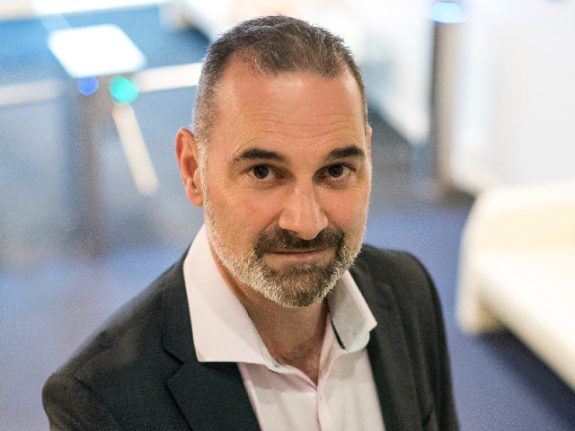
We started this period as a business at which work was conducted in the workplace, and we had to find a way to mobilise 550 people. Enabling them to work effectively, efficiently and productively from their home environment was a challenge.
I doubt we’ll ever go back full time to an office-based environment; I envisage a mix of both office-based working for the social aspect and interaction with colleagues, while also maintaining the freedom of work from home.
Previously, we thought our customer service teams couldn’t work remotely, but within two days they proved us wrong. In April, we had our highest ever customer satisfaction scores.
Mobile has been essential throughout lockdown, and businesses will look to a more streamlined mobile management and VoIP system accessed remotely rather than perhaps traditional desk-based telephony.
We’ve got strong hopes for the next year, with telecommunications holding the key to businesses innovating and thriving in the ‘new normal’.
For businesses that don’t adapt, that decision may prove costly – and maybe even terminal.
But for those that take themselves on that digital journey, there are gains to be made. Organisations will find themselves operating
in a world without walls.
Teams and Zoom have been phenomenal, yet I’m looking forward to a face-to-face catch-up with colleagues and my team about the exciting plans we have for the year ahead.
John Fannon, sales director, Bastion Insurance Services:
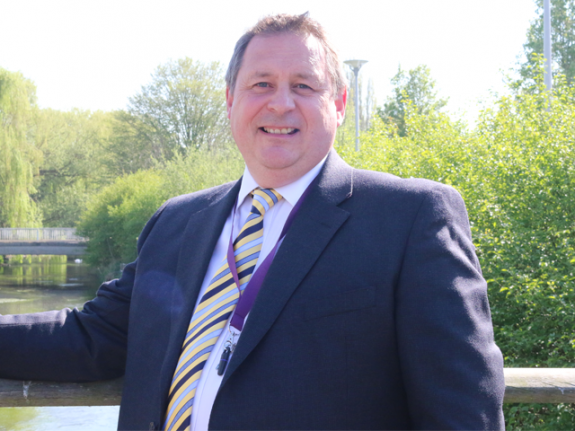
Like many other companies, we had to rapidly close the office and our claims operation. Fortunately, we are set up to enable staff to work from home, and this has been the norm since lockdown.
All staff have remote access to our systems to enable routine customer and partner service continuity.
No Bastion staff have been furloughed. The main impact has been the limited ability to advance some exciting ongoing projects that were in the pipeline because we were prevented from holding business development meetings with our partners and potential partners.
We rapidly became video-conferencing experts. Whilst they will never replace the productive informality of a good meeting, they enabled us to move some projects ahead and even launch a couple of programmes into the market for our partners.
We have regular ‘office’ catch-ups with the team that would normally be on-site in Oxford. This doesn’t replace being on-site, but means that we can all keep up to date on any issues and make sure all staff are well.
We set up from day one to be a systems-based operation, so it is unlikely that we will need to shrink office space. However, the lockdown has illustrated that not everyone needs to be in the office all the time. I envisage more working from home than we were previously used to. Nonetheless, we still feel it’s essential that we operate as a team, with frequent and regular human contact and interaction.
Undoubtedly, the business world has seen, felt and benefited from mobile working technology. In many cases, they simply could not have continued without it.
This has to be good news for the industry. I have conducted business video meetings from my home office, my car and even a tent.
The longer-term impact of this realisation is that there are alternative ways to run, which will greatly benefit the sharp operators within the mobile world who promote this.
One key element that lockdown has illustrated is the dependency that we all have on our mobile devices. They have been essential and therefore need looking after, which is precisely what we do.
So I see 2021 as a buoyant year for us and the rest of the Telecoms industry. I cannot wait to see a lot of our partners face to face – it is how we do business here at Bastion. Virtual meetings are good for some basic fact-finding, but a detailed personal chat is far more productive and enjoyable.
Damian Scott, business development director, Tech SI:

The impact has been generally positive. The work that we do with retailers has continued and our e-commerce sales have been strong. Trade sales have been challenging, but the sales team has risen to the occasion and we’re broadly on target.
We received early guidance from our parent company in Singapore on social distancing, sanitisation and temperature scanning from mid- February, so we were ahead of the curve. We were able to have our sales, finance and admin teams working from home with
no disruption. We’ve been having sales meetings via Skype and have brought on more new customers in the past four months than ever before.
We set ourselves ambitious growth targets for 2020 and Covid-19 could have represented a major spanner in the works, but we’re still progressing plans for a major upgrade to our facilities soon.
Manufacturing and sales of new devices have taken a huge hit, with many consumers no longer aspiring to own the latest model handset.
For those only selling new devices or not able to maintain their business momentum, 2020 may prove a difficult trading year and some will struggle to see the year out. Yet those able to weather the storm will come out of this stronger and with an increased share of the market.
We’re confident for 2020, 2021 and beyond. We’ve been adding to our sales, purchasing, marketing and HR teams to bolster our business growth; we’re diverse and we’ll remain agile.
The pandemic has proven that we can do face-to-face and video calls effectively, so I’m happy either way. I feel it has become more acceptable to have a meeting via videoconferencing rather than doing a three-hour round trip. However, when we’re discussing new business opportunities with prospective clients, a visit to our facility will always be more beneficial than a Zoom call.
Ashley Bailey, CEO, CTech Group:

The lockdown didn’t impact too greatly. I wanted to make sure
everyone had what they needed and ensure that mental health was secure.
We helped those with families and put in place more ways of working so everyone knew what was happening. We reviewed the collaborative technology we had in place, while Microsoft Teams has helped us manage everything efficiently.
The biggest impact was that retailers had to adapt business models to the lockdown initially, and then the new Covid-19 requirements.
At the start, this slowed business down. But we’re now seeing things pick up again, with business showing signs of getting back to a normal pace. We have managed to adapt to the changes quickly and come out of lockdown in a stronger position. We have more networks and partners now, as retailers have reacted to new buying habits and trends. We still have our office in London, which is a permanent fixture for the business.
The epidemic showed us we have a team that can work at home as productively as in the office. Microsoft Teams has been a secure way of messaging our team daily. Mobile data has been intrinsic and highlighted the importance how such technology has become central to everyone’s lives. We’re certainly going to see a larger number of retailers under pressure to bring in more revenue from subscription services.
The high street was already in trouble and the epidemic has now forced the consumer to become more reliant on shopping online. I’m not sure many businesses will be rushing to have face-to-face meetings with external clients when we’ve proven that business can be done over the phone and video.
That said, I can see that there will be occasions where it’s important to host some meetings in person. Presenting yourself and your business is a very important factor for winning trust and business. It’s always going to be more powerful in person.
James Phillips, MD, Lease Group:

We adopted remote working throughout lockdown. Fortunately, our business isn’t reliant on too much on-premise technology, so we adapted to home working relatively easily.
Our meetings were via video-conferencing. We saw a reduction in big-ticket leases as companies held off on large-scale deployment because of uncertainty and office shut-downs.
We reintroduced educational messaging around the importance of cash flow for mobile suppliers. Leasing benefits partners as much as it does customers, so we saw a steady line of business as partners switched from traditional network contracts to leasing as a way of aiding their cash position.
Lease Group returned to the office on July 6, and this is where we plan to stay for the foreseeable future. We have recruited new team members who are helping to bolster support for partners as lockdown eases.
I see long-term benefits for mobile and cloud telephony if remote working becomes the new normal. Desk phones will probably decline as companies utilise the mobile features of cloud telephony, and the reliance on mobile technology will become greater than ever before.
The jury is out as to whether remote working is here to stay or whether businesses in general will slip back to the office. What is certain is that businesses are tight on cash, and suppliers and customers will look to leasing and finance as a way of bridging the
gap and bringing 2020 back on track.
The next 12 months will be busy for Lease Group, hence our recruitment. I suspect more face-to-Workers have adjusted during lockdown to taking part in meetings online face meetings in the New Year.
Ken Parker, head of operations, Mazuma Mobile:

Lockdown has meant we have had to dig deep to continue to manage staff concerns around the present threat and the requirement to continue as a business. In the early stages of the pandemic, the government encouraged online companies such as Mazuma to stay open to keep the economy going. As a result we quickly adapted to the new working “normal”. This involved improving the efficiency of our processes in order to continue to provide same day payments for devices whilst operating with a reduced work force, and without reducing the high levels of customer service.
We used the furlough scheme and managed to balance staffing levels with the volumes being received. We have since been able to bring all staff members on furlough back into the business with the last staff member returning on the 20th July. We have the luxury of 75,000 square feet of space at Mazuma therefore social distancing was far easier for us in the workplace than it may have been for other businesses. We quickly implemented all suggested safety measures, providing gloves, face masks and hand sanitiser. We also staggered break and lunch times to mitigate high traffic levels through the building and all staff that could work from home did so.
Some staff, particularly the sales staff have thrived in the home working environment so this might be something we would consider moving forwards. The use of MS team meetings has been a real winner and has been embraced by the whole management team.
We believe so yes as more people have embraced MS Teams and Zoom meetings across a multitude of devices both mobile and desktop both in the professional and personal environments
We remain confident, as we did before lockdown that we shall grow as business. We have recently introduced gaming and laptops onto our website offering and are looking to expand the workforce as these device type volumes increase.
We will definitely consider if travel is required moving forward for face to face meetings, both from a commercial and an environmental perspective. As good as MS teams is there is no substitute in certain meetings for being with the person you are trying to do business with.
Peter Boucher, CEO, Excalibur Communications:

Excalibur employees have always had the ability to work from home, and some of our team did this, one or two days per week.
The reality is that we’ve now all been working from home for over four months and regular Microsoft Teams meetings have become the norm. So far, we have been as busy as usual and maintained our operational numbers.
Lockdown has had more of an impact on our customers. Whilst we have always encouraged clients to plan for business disruption, such as major outages or critical weather, the Coronavirus lockdown has created a critical need for businesses to set themselves up to operate remotely.
Many clients literally had to take their office PCs home in order to keep working. We were incredibly busy at the end of March setting up remote working capabilities and VPNs.
We have seen mobile usage go up and of course domestic phone use. The use of short-term emergency tariffs offered by the network providers have seen good uptake and, in particular the short-term enterprise service plans from Gamma.
Excalibur had people working from home already. We will probably do this a little more going forward, but not full-time. I think we are likely to adopt a hybrid office and homeworking culture that supports employee engagement and our corporate values.
At the point of lock-down, Excalibur had coincidentally just moved into smaller office space. Working in mobile comms and IT, we had already started to see a shift to more mobile and flexible working internally and among our clients, so felt we didn’t need so much space. I think the lock-down has simply speeded up this shift.
The mobile industry has already benefited from a shift in the growth of mobile working and should continue to see a steady growth post Corona. However, I think the lock-down has more impact for Cloud communications with the global boom in online collaboration, in particular video conferencing. This way of working is definitely here to stay. It also saves businesses a great deal of time and money.
I am cautiously optimistic for Excalibur, but this will depend on our customers and how they fare in the next six months. We work with a lot of SMEs and entrepreneurial companies and we have been impressed by how quickly they have adapted to their business to changing market conditions.
I am really looking forward to being in the room for meetings with customers, new business, partners and colleagues – when it is safe to do so. There’s always a role for face-to-face meetings, but I think we now all recognise that video meetings work and are very effective for making decisions and getting things done. As result, I think we will take a hybrid approach to booking meetings, and arrange them as appropriate. The savings on travel, time, carbon cannot be ignored. Excalibur will have cut its carbon footprint by 50% this year, which is a great outcome.
Peter Carnall, MD, Eurostar Global

Throughout lockdown, the wellbeing and protection of all Eurostar’s staff has been our priority. There have been a number of wide ranging impacts to the business from implementing hygiene and operational safety measures across operations to the sad postponement of Eurostar’s charity ball.
Despite all of the impacts of Coronavirus, technology has kept us connected and Eurostar’s robust systems together with its dedicated workforce has meant limited impacts for our customers and vendors.
Eurostar reacted quickly and decisively, both to protect its workers and to provide seamless continuity for its customers and vendors.
Key partners in various supply channels were going to be reliant on Eurostar to continue to deliver products to meet their essential supply chain demands.
Plans were put in place, IT preparations were made well in advance of lockdown, with hardware and services established for remote working and rather than being reactive to the situation we worked to deliver the optimum results with the foresight available.
Assessments were made and innovative solutions were deployed to assist with things such as sanitisation of inbound parcels where high output steam cleaners were used to sanitise packages prior to their acceptance at goods in.
Long-term, Coronavirus has shown how versatile and dedicated the Eurostar workforce are. Despite the environment changes for all of our office workers, there has remained an unwavering energy that has maintained consistency in delivering the output and support that is so valuable to our customers.
Undoubtedly, this commitment coupled with the proven results from the Eurostar team, has presented opportunities to review future flexible working arrangements for Eurostar’s office staff in the future. The business will continue to review and monitor the situation and look to return workers in line with government guidance and when it feels it is safe and correct to do so.
The ability to operate from a communal base will always remain core to our operations. With predicted further growth anticipated across the current year despite Coronavirus, the business is looking to consolidate operations into a single distribution centre within the next 18 months, that will see operational capacity more than treble.
Companies will certainly be learning valuable lessons in terms of business continuity and incident response while demand across the UK for our broadband infrastructure will continue to be a UK priority now.
In terms of devices, I think we passed the point a long time ago, where hardware to support that connectivity was an option. Devices have been essential for some time now and people will continue to renew their technology as it develops and evolves.
Eurostar is extremely optimistic and while we remain cautious, the focus and strategy remains to deliver the plans and forecast business performance that were in place pre-Covid. Currently we are on target to achieve this.
There will never be a replacement for human interaction, but like all things, embracing and harnessing the technology that surrounds us through virtual meetings where appropriate can add value by helping to save the most valuable asset we have. Time.
Mark Weston, mobile sales director, Exertis

Exertis is a designated “key worker organisation” and we have remained open for business. Our priority has always been first and foremost the health and safety of our employees whilst minimising the disruption to our customers in the supply of technology equipment.
Despite the change in working practices, our employees have responded to the challenge and we have seen increased productivity in many areas due to flexible working with better communication and collaboration between teams.
We implemented our business continuity plan. Whilst the majority of our office based staff could function from home, our warehouse operatives have been amazing in their commitment and dedication to continue working in challenging circumstances, adapting to the social distancing and hygiene measures that we put in place. Consequently, they have been instrumental in maintaining the vital supply chain for our vendors and customers, illustrating the benefits that distribution brings to the channel.
There have been so many learnings from what has essentially been a huge remote working trial and, as with anything, it’s clear one size doesn’t fit all. It’s about optimising our business performance and employee experience by utilising a range of tools to collaborate and contribute, and remote working is just one part of that.
The pandemic has definitely accelerated our use of technology and collaboration tools and we will continue to build on that.
There will always be a place for face-to-face meetings but technology has shown that business can operate perfectly well in a virtual environment.
There are huge environmental benefits to be gained from reducing travel, as well as cost, and opportunities to improve wellness through better work-life inclusion.
People used to talk about work life balance, but we think this will shift to work life inclusion post Covid and probably already has in some workplaces.






